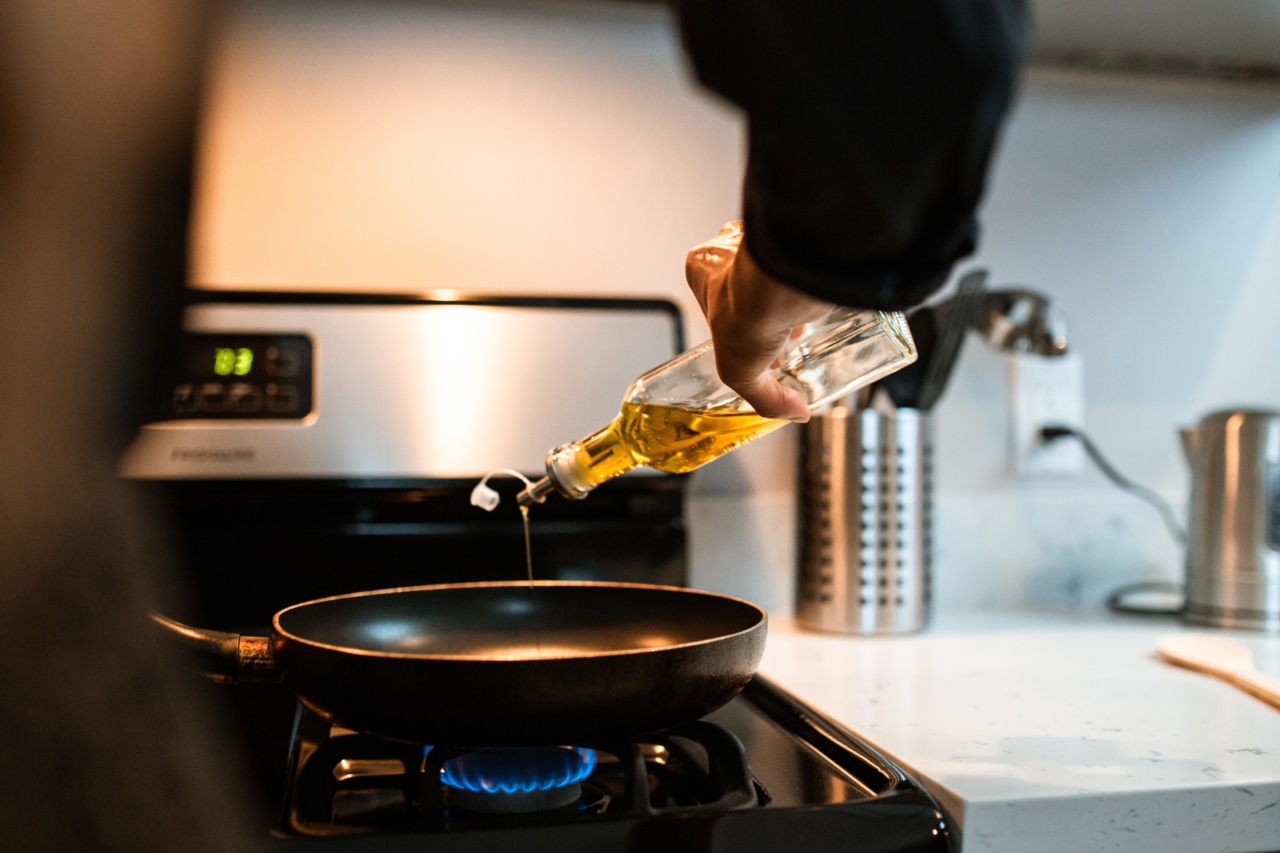Olive oil is not only a delicious and versatile cooking ingredient but also offers numerous health benefits. It is rich in monounsaturated fats, antioxidants, and anti-inflammatory properties, making it a valuable addition to any diet.
However, to maximize its nutritional value, it is essential to use olive oil correctly. In this article, we will explore the best practices for using olive oil to ensure you reap all its health benefits.
Choosing the Right Olive Oil
When it comes to olive oil, quality matters. To maximize the nutritional value, opt for extra virgin olive oil (EVOO). This type of olive oil is made from the first pressing of olives and undergoes minimal processing.
Storing Olive Oil
Proper storage is crucial for preserving the nutritional value of olive oil. Exposure to air, light, and heat can accelerate oxidation and degrade its quality. To keep your olive oil fresh:.
1. Store in a Dark and Cool Place
Avoid exposing olive oil to direct sunlight or heat sources. Ideally, store it in a cool pantry or cabinet away from the stove or any appliances that emit heat.
2. Choose Dark Glass Bottles
Olive oil should be stored in dark glass bottles that protect it from light. Avoid clear plastic containers as they don’t offer sufficient protection against light exposure.
3. Keep the Bottle Sealed
Ensure the bottle is tightly sealed after each use to prevent air from oxidizing the oil. Oxygen exposure can cause the oil to become rancid and lose its nutritional value.
Using Olive Oil for Cooking
Olive oil is a fantastic option for cooking due to its high smoke point and flavor. Here are some tips for using olive oil effectively:.
1. Use Olive Oil for Low to Medium Heat Cooking
Olive oil has a smoke point of around 375°F (190°C), making it suitable for sautéing, stir-frying, roasting, and baking at moderate temperatures. However, it is not recommended for deep frying or high heat cooking methods.
2. Combine with Other Cooking Oils
Mixing olive oil with oils that have higher smoke points can increase its versatility in high-heat cooking. Consider combining it with avocado oil, grapeseed oil, or coconut oil to enhance its versatility.
3. Add After Cooking
For maximum nutritional benefits, drizzle olive oil over cooked dishes just before serving. This preserves its unique flavors and prevents excessive exposure to heat.
Using Olive Oil in Salad Dressings
Olive oil is a key ingredient in various salad dressings. Follow these guidelines to ensure you get the most out of your olive oil-based dressings:.
1. Use Cold-Pressed Olive Oil
Cold-pressed olive oil retains most of its nutrients and flavors, making it ideal for dressings. Its fruity and robust flavors can enhance the overall taste of your salads.
2. Create Balanced Dressings
While olive oil is a healthy choice, using proper proportions is important. Combine olive oil with vinegar or acidic components, such as lemon juice or balsamic vinegar, to create a balanced taste profile.
3. Store Dressings Properly
Refrigerate homemade dressings in a sealed container to maintain freshness. Olive oil-based dressings can solidify when chilled, so remember to bring them to room temperature or shake well before use.
Using Olive Oil as a Dip
Olive oil makes a delicious and healthy dip for bread, vegetables, or other snacks. Follow these tips to enjoy it to the fullest:.
1. Select High-Quality Dipping Olive Oil
Choose a high-quality extra virgin olive oil with robust flavors for dipping. Look for fruitiness, bitterness, and pungency, which are indicative of high-quality olive oils.
2. Add Herbs and Spices
Enhance the flavor of your dipping oil by infusing it with herbs and spices. Crushed garlic, rosemary, basil, or red pepper flakes can add a delightful twist to your olive oil dip.
3. Use Small Bowls or Plates
Pour a small amount of olive oil into shallow bowls or plates. This way, you can conserve the oil and ensure each dip is full of flavor.
The Bottom Line
Olive oil offers exceptional nutritional value and health benefits. By choosing high-quality olive oil, storing it correctly, and using it appropriately in various culinary applications, you can maximize its nutritional benefits.
Whether it’s cooking, dressing salads, or dipping, incorporating olive oil into your daily routine is an excellent way to support a healthy lifestyle.




























